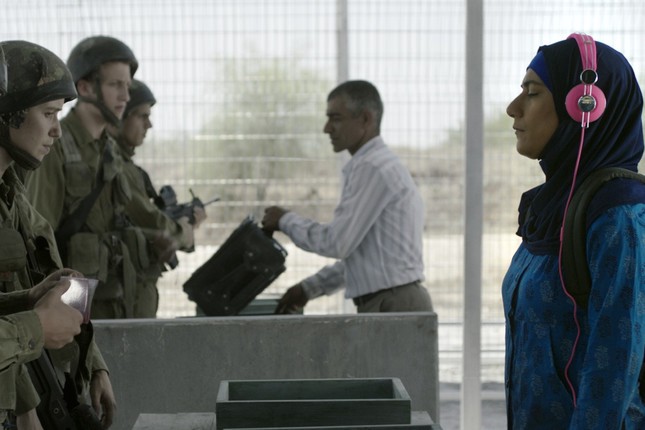Self Made’s opening scene sees a young woman sleeping contentedly, only for her bed to suddenly give way and collapse underneath her. It is a moment that is at once dreamlike and shocking, and it sets the tone for the rest of Shira Geffen’s wildly inventive drama. The woman is Mihal, a Jerusalem-based conceptual artist (played by Sarah Adler), and on ordering a new bed she inadvertently causes Nadine (Samira Saraya), a Palestinian working at the furniture firm that supplies the replacement, to lose her job. From such a small domestic detail, Geffen spins a tale of multiplying unintended consequences that sees these two women from either side of the Israeli-Palestine border swap roles and live out each other’s identity. The results are exhilaratingly provocative, mordantly absurd, and full of oblique and lacerating insights that probe the on-going political difficulties of the region. (Edward Lawrenson for LFF)
Self Made will play at the London Film Festival on October 9, 12, and 13.
W&H: Please give us your description of the film playing.
SG: Self Made tells the story of a Israeli and a Palestinian woman, who, after a mix up at a checkpoint, find themselves living each other’s life on the other side of the border.
W&H: What drew you to this story?
SG: Ten years ago, I read an interview with a Palestinian woman who was caught on her way to a suicide bombing in an Israeli shoping mall. In the interview, she said she volunteered to be a suicide bomber after the Israeli army killed her fiance, but when she got to the mall and saw children eating ice cream and people walking into stores to do their shopping, she decided not to blow up. It make me think about how in a place where someone feels like dying, someone else found her will to live.
W&H: What was the biggest challenge in making the film?
SG: It took me five years to raise the money to make the film. All the Israeli film funds had rejected the script, saying the story world was too strange and inconsistent. The greatest challenge was to communicate the extremely emotional and detailed vision in my head to other people.
W&H: How did you get your film funded?
SG: The film was funded by some small grants, an advance from an Israeli distributor, and an Israeli TV presale.
W&H: What’s the biggest misconception about you and your work?
SG: My film comes from a very poetic and lyrical place but takes place in very concrete political settings. Some people come to see it looking for a clear political agenda and feel confused when they find something which is more human and ambiguous in its place.
W&H: What do you want people to think about when they are leaving the theatre?
SG: I just want them to think differently.
W&H: What advice do you have for other female directors?
SG: Trust your instincts.







